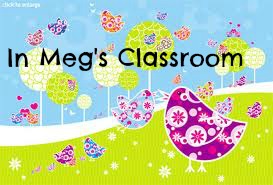Second semester into a Masters Degree and already we are on our first 4 week professional experience. I was super excited to get Wiley Park Public School, located in Sydney's South West. Not only is it convenient in terms of proximity to my own home, it is a really good school. What makes a good school some may ask, to me, a good school needs to have quite a few things, some of which are:
*caring, supportive, professional and experienced teachers, as well as administrative staff.
*Strong behavioural management policy that is implemented across the school.
*Programs that support students and families, some of the programs that run at Wiley Park:
-play group for pre-kinder students, it allows children who will be attending school the following year to get used to school and for parents to meet other parents.
-parent groups - run by staff and school Councillor, to provide parents with support on parenting etc.
-homework club
-active after school
-community translation offices
-extensive support staff, reading recovery and ESL teachers
-support for students who are new arrivals to Australia.
The great thing about working at a school like Wiley Park, is that you get exposure to great new programs that are being enacted across public schools in NSW. I got to sit in on a professional development course which was being run for teachers at the school. It is called Focus on Reading:
Focus on Reading is a professional learning program that supports teachers to understand and teach reading strategies that will enable students to access a range of texts they are required to comprehend. It may seem obvious but reading is about comprehending and this is something some students have a lot of trouble with. Reading is much more than deciphering and decoding letters into words, it is about comprehending the meaning of a story. I had a student in Year one who had real trouble decoding words, however, she had a great comprehension of the text, which she acquired through the pictures, as well as her limited knowledge of some words. For younger students, this is the first step in reading and an incredibly important step. There may be some children who are very good at decoding words but have a poor ability to actually comprehend what the text means and gain little value from it.
The program emphasises:
- the integrated teaching of six research-based metacognitive comprehension strategies along with the importance of vocabulary knowledge and fluent text reading
- the importance and use of rich texts, particularly subject-based texts, multi-modal texts and the types of texts that interest and motivate middle years learners
- the significance of engaging students in rich talk of the kind that encourages them to ‘show their thinking’ through talk
- ‘deliberate’ teaching that:
– begins with insightful assessment
– involves planning for explicit instruction based on students’ needs
– supports and scaffolds students through modelled, guided and independent teaching
– provides clear and purposeful feedback and constant opportunities for student reflection - increased levels of cultural awareness and the common ground between Indigenous pedagogies and optimal pedagogies for all learners to guide teaching and learning.
The Super Six:
1. Predicting
- Learners use information from graphics, text and experiences to anticipate what will be read/viewed/heard and to actively adjust comprehension while reading/viewing/listening.
2. Monitoring
- Learners stop and think about the text and know what to do when meaning is disrupted.
- Asking questions, such as: is this making sense? What have I learnt? Do I need to re-read, view or listen?
3. Visualising
- Learners create a mental image from a text read/viewed/heard. Visualising brings the text to life, engages the imagination and uses all of the senses.
4. Questioning
- Learners pose and answer questions that clarify meaning and promote deeper understanding of the text. Questions can be generated by the learner, a peer or the teacher.
5. Making Connections
learners make personal connections from the texts with:
- something in their own life
- another text
- something occurring in the world
6. Summarising (handy to assess student learning and comprehension of text)
- Learners identify and accumulate
- the most important ideas and
- restate them in their own words.
These strategies are useful for any teacher who is looking for some more scaffolding in their literacy program and wants/needs to engage their students in some higher order thinking and comprehending in relation to text.

No comments:
Post a Comment